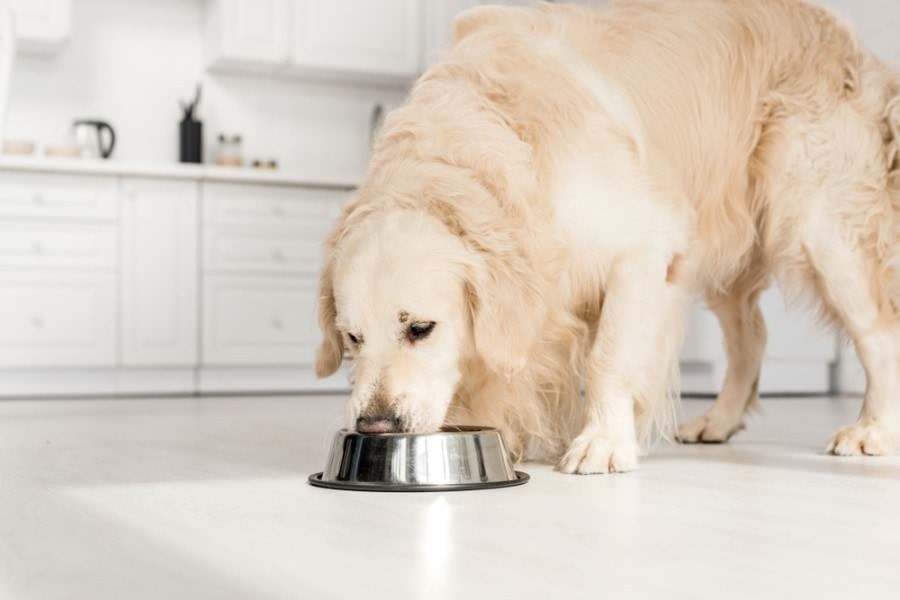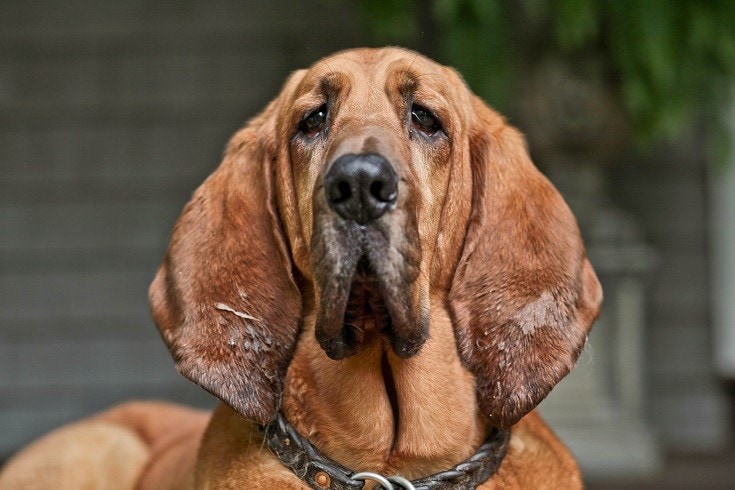Why Do Dogs Eat Snow? Is It Safe? 4 Vet-Approved Reasons
Updated on
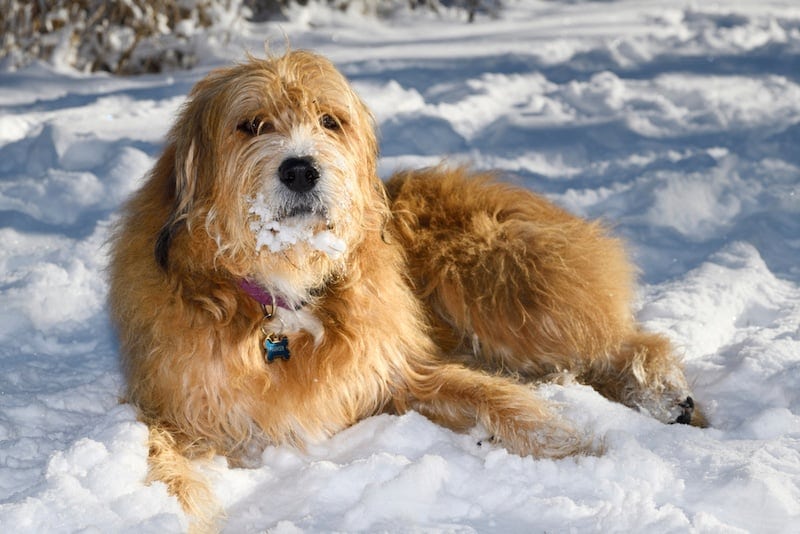
It’s a common sight to see a dog playing in the snow, but what about eating it? Is it safe for your pooch to eat snow? What are the risks, and what should you do if you see your pup licking snow off the ground? If you know for sure that the snow is clean and free of pollutants, you can let them eat it in moderation. Let’s discuss whether eating snow is safe for your pet, as well as the reasons why dogs do it.
Is Eating Snow Safe for Dogs?
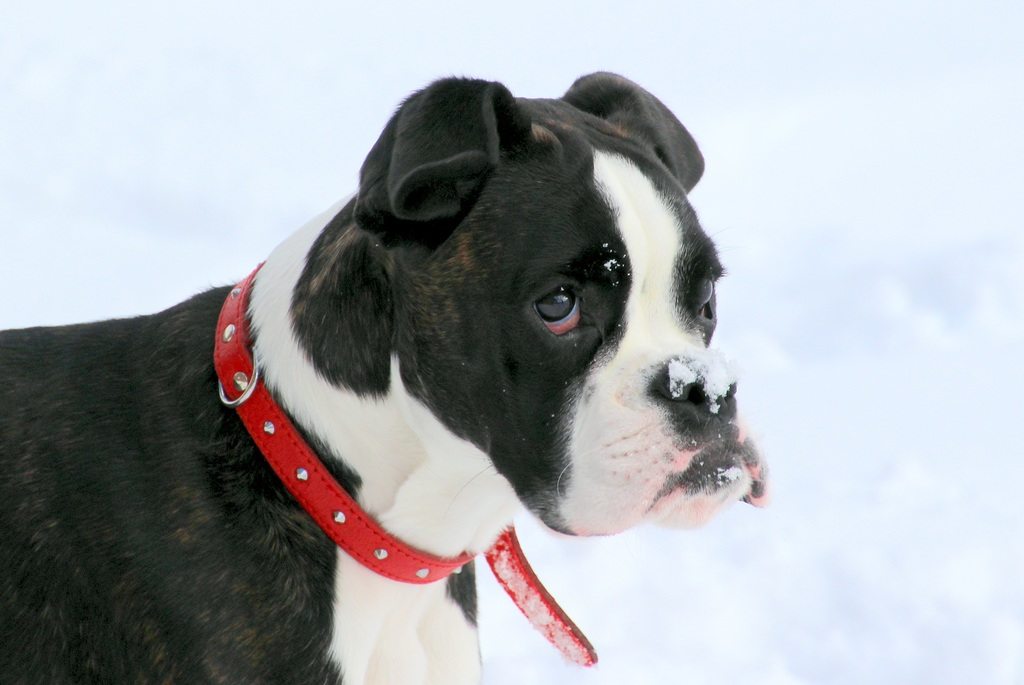
It is generally considered safe for dogs to eat snow, although there are a few exceptions that you should be aware of. Eating snow can be dangerous for your pup if the snow has been contaminated with chemicals, salt, or other pollutants. Additionally, if the snow is from a puddle or is otherwise unclean, it can carry bacteria and other pathogens that can make your pup sick.
To be on the safe side, it’s best to discourage your pup from munching on snow. If you know for sure that the snow is clean and free of pollutants, you can let them eat it in moderation. But be sure to watch your pet when you return indoors in case they start to show signs of distress or illness. And if you have any concerns after your dog has eaten snow, give your vet a call.
The 4 Reasons Why Dogs Eat Snow
There are a few explanations why dogs may eat snow, most of which can be attributed to their natural instincts. Let’s take a look at the most common reasons why your pup may be drawn to eating snow:
1. Thirst
We all know the importance of keeping our dogs hydrated in the summer, but what about the winter? It is just as important, if not more so! Indeed, during the cold season, most dogs spend more time in our overheated homes where the air is often very dry. These conditions are conducive to the dehydration of our pets.
So, whenever your dog gets a chance to stretch their legs outside, they’ll probably want to gobble down a pile of snow to quench their thirst.
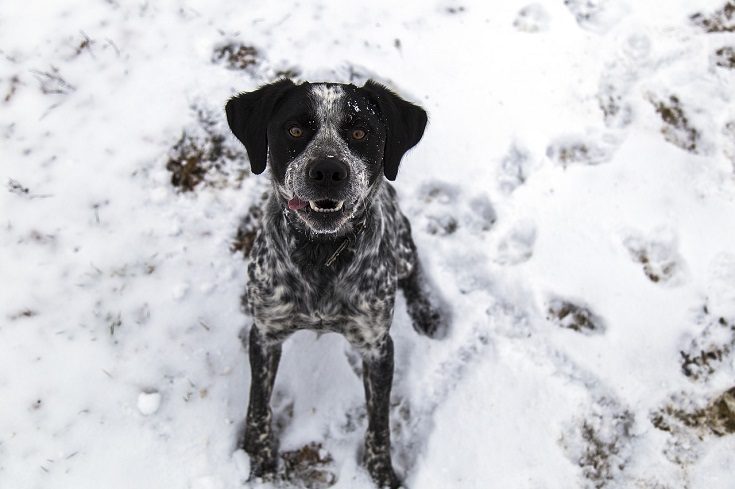
2. Boredom or Curiosity
Sometimes, dogs may eat snow out of sheer boredom. If your pup is feeling restless and has nothing else to do, they may turn to the snow as a way to pass the time. Also, if this is the first time your puppy has seen snow, they will be intrigued. Thus, they will want to taste this new cold and white thing simply out of curiosity.
3. Natural Instinct
Eating snow is also a natural instinct for dogs. Some breeds, such as huskies, may have a stronger instinct toward eating snow. This natural tendency can be attributed to the breed’s origins, as they were bred to survive in cold climates and would need to eat snow to stay hydrated and keep their body temperature regulated.
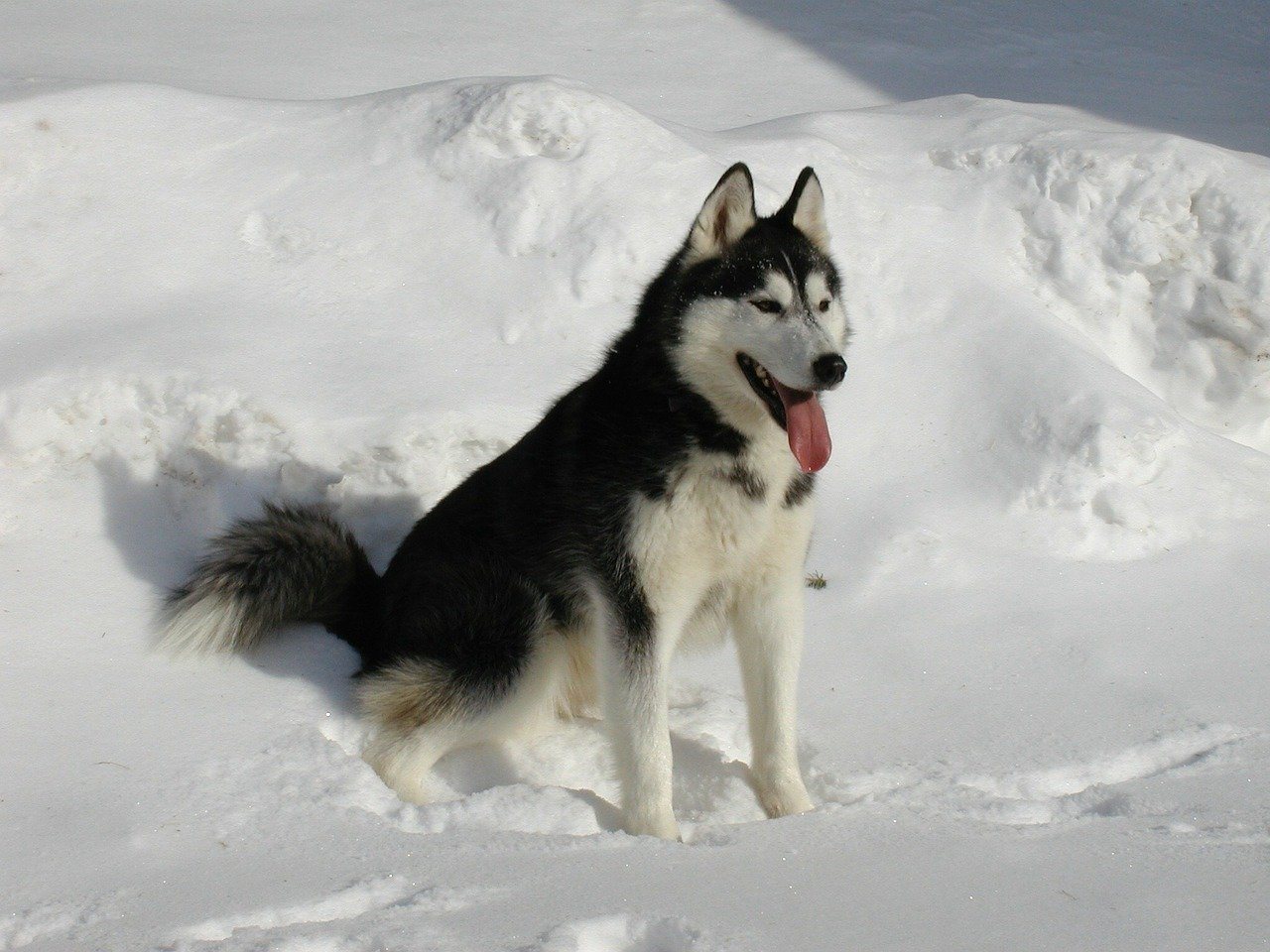
4. Medical Conditions
Although it’s normal for your dog to eat a bit of snow, you should start to worry if this behavior becomes compulsive, as it can be a sign of a health problem. For example, a dog that eats a lot of snow may be suffering from intense thirst related to a disease such as diabetes, kidney failure, or Cushing’s disease. So, if you find that your dog is eating snow excessively, it’s a good idea to take them to the vet to make sure there isn’t an underlying medical issue.
How to Discourage Your Dog from Eating Snow
If you want to discourage your pup from eating snow, there are a few things you can do:
- Provide your dog with plenty of water that you will change regularly to keep it fresh.
- Walk your dog on a leash and try to avoid snowy areas, especially slush puddles.
- Bring a toy or treat on your walk to distract them from the snow and keep them occupied.
- Consult your veterinarian if you suspect an underlying health issue in your canine companion.
Conclusion
Eating a bit of snow is a common and normal behavior for dogs, but it is not without risk. There’s no need to overreact if you see your beloved pup licking a few snowflakes, but be alert in case your dog swallows a dangerous object hidden in the pile of snow. And again, if you think your dog is eating snow excessively, consult your vet.
Featured Image Credit: Reimar, Shutterstock





